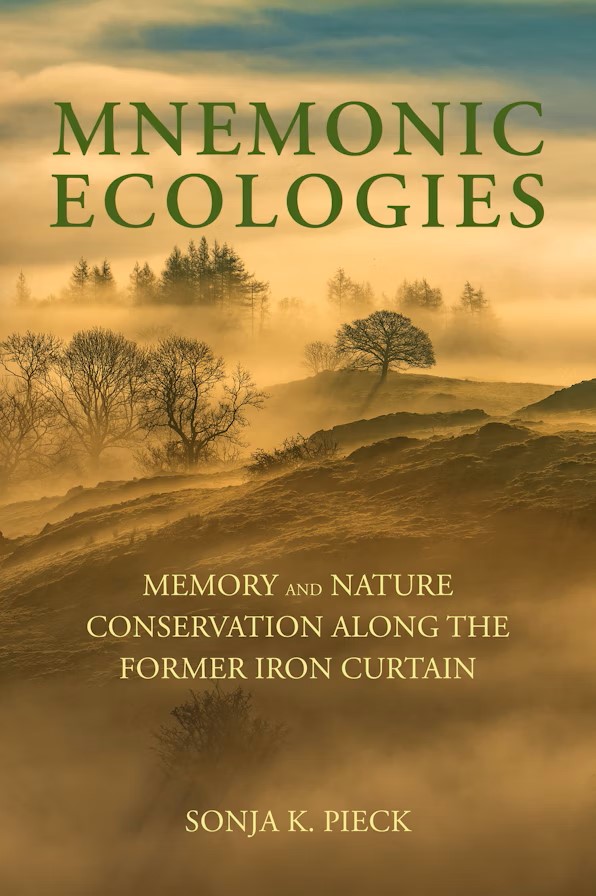Sonja K. Pieck discusses "Mnemonic Ecologies: Memory and Nature Conservation along the Former Iron Curtain."

Sonja Pieck, Professor of Environmental Studies at Bates College (USA), will discuss her book Mnemonic Ecologies: Memory and Nature Conservation along the Former Iron Curtain (The MIT Press, 2023) in the Greenhouse environmental humanities book talk series on Monday, 30 September 2024, at 16:00 in Norway / 10am Eastern.
Zoom link: https://us06web.zoom.us/j/89463017859?pwd=03W73sbuTessYkQ88DZwPt6sInZ6Sa.1
The first book-length scholarly treatment of Germany’s largest conservation project, the Green Belt, Mnemonic Ecologies by Sonja Pieck presents a new interdisciplinary approach: that effective restoration and conservation of wounded land must merge ecology with memory. Since the Cold War’s end in 1989, German conservationists have transformed the once-militarized border between East and West Germany into an extensive protected area. Yet as forests, meadows, and wetlands replace fences, minefields, and guard towers, ecological recovery must reckon with the pain of the borderlands’ brutal past. The lessons gained by conservationists here, Pieck argues, have profound practical and ethical implications far beyond Germany.
Can conservation help heal both ecological and societal wounds? How might conservation honor difficult socioecological pasts? Deeply researched and evocatively written, this beautiful, interdisciplinary investigation into the legacy of war and nature’s resurgence blends environmental history, ethics, geography, and politics with ecology and memory studies. Amid our rampant biodiversity crisis, Mnemonic Ecologies shows why conservation must include humanized landscapes in its purview, thus helping to craft a new conservation ethos that is collaborative, empathetic, and more sensitive to the connections between humans and the places they inhabit.